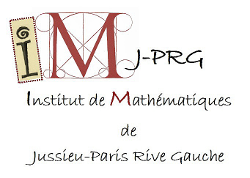| Résume | I will discuss recent work on the general theme of continuous logic as an environment well-suited for certain methods in multiplicative combinatorics (i.e., the extension of additive combinatorics to noncommutative groups). The starting point is Pillay's result that the connected component of a definable compactification of a pseudofinite group is abelian. In joint work with Hrushovski and Pillay, we give a short proof of this using only classical tools, including a result of A. Turing on finitely approximated Lie groups. Using a connection between Turing's theorem and a (relatively) more recent result of Kazhdan on approximate homomorphisms, one obtains a generalization of Pillay's theorem to ultraproducts of amenable torsion groups. In previous work on “tame arithmetic regularity”, the results of Pillay and of Kazhdan were instrumental for introducing classical Bohr neighborhoods into the setting of noncommutative groups. However, the execution of this approach was quite complicated due to certain drawbacks of classical first-order logic. In the paper with Hrushovski and Pillay, we build Kazhdan's result into continuous logic in order to remove these complications. As an illustration of the method, we use the stabilizer theorem to extend a fundamental result from additive combinatorics (called Bogolyubov's Lemma) to arbitrary amenable groups. More recently, in work with Pillay, we combine this continuous setting with local stability to prove a regularity lemma for “stable functions” on amenable groups. This result is an analytic analogue of the arithmetic regularity lemma for stable subsets of finite groups, proved first in the abelian case by Terry and Wolf, and then generalized by myself, Pillay, and Terry. As a consequence of stability of Hilbert spaces, the analytic stable arithmetic regularity lemma applies to convolutions of arbitrary functions on amenable groups. This allows one to deduce the previous generalization of Bogolyubov's Lemma as a quick corollary of analytic stable arithmetic regularity. |

